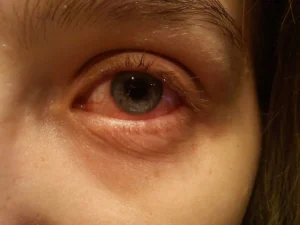Have you ever experienced a sudden and intense pain in your leg muscles that leaves you awake in the middle of the night? If so, you may have encountered leg cramps. Leg cramps, also known as muscle spasms, are a common occurrence that can be both painful and disruptive. These involuntary contractions of one or more muscles in the leg can occur without warning and cause discomfort that lingers even after the cramp subsides.
In this article, we will explore the causes, prevention strategies, and effective remedies for leg cramps. Whether you are seeking relief from frequent leg cramps or looking for ways to prevent them altogether, this comprehensive guide will provide you with the information you need. So, let’s dive in and discover how to tackle leg cramps and regain comfort in your legs.
1. What are Leg Cramps?
Leg cramps are sudden, involuntary contractions of one or more muscles in the leg. These painful muscle spasms often occur in the calf muscles, but they can also affect the thighs or feet. Leg cramps can last for a few seconds to several minutes, leaving you with discomfort even after the cramp subsides.
Read more.Best 10 Minutes Yoga For Knee Pain
2. Causes of Leg Cramps
Leg cramps can have various underlying causes, including:
1. Dehydration
One common cause of leg it is dehydration. When your body lacks adequate fluids, it affects the electrolyte balance in your muscles, leading to muscle cramps.
2. Muscle Fatigue
Overusing or straining your leg muscles, especially during intense physical activities, can result in leg cramps. Muscle fatigue can lead to imbalances in electrolyte levels, causing cramps.
3. Nutritional Deficiencies
Insufficient levels of certain minerals like potassium, calcium, or magnesium in your diet can contribute to leg cramps. These minerals play a vital role in muscle function and contraction.
4. Medications
Some medications, such as diuretics or statins, may increase the risk of leg cramps as a side effect. Consult your healthcare provider if you suspect your medication might be causing leg cramps.
5.Neurological disorders:
Conditions such as neuropathy or nerve damage can disrupt the normal functioning of muscles and contribute to leg cramps.
3. Risk Factors
Certain factors may increase your susceptibility to cramps. These include:
1. Age
As we age, our muscles tend to lose elasticity, making them more prone to cramping.
2. Pregnancy
Pregnant women commonly experience this, especially during the second and third trimesters. Hormonal changes and increased pressure on leg muscles contribute to this discomfort.
3. Medical Conditions
Underlying medical conditions such as diabetes, peripheral artery disease (PAD), or nerve damage can increase the risk of leg cramps.
4. Symptoms
- Sudden and intense pain in the affected muscle
- A visible or palpable knot or hard lump in the muscle
- Muscle twitching or contractions
5. Prevention and Lifestyle
To prevent leg cramps, consider the following strategies:
1. Stay Hydrated
Ensure you drink an adequate amount of water throughout the day to maintain proper hydration levels.
 2. Maintain a Balanced Diet
2. Maintain a Balanced Diet
Include foods rich in potassium, calcium, and magnesium in your diet. Bananas, leafy greens, dairy products, and nuts are excellent sources of these minerals.
 3. Warm-Up and Stretch
3. Warm-Up and Stretch
Before engaging in physical activities or exercises, warm up your muscles and perform stretching exercises to reduce the risk of leg cramps.
 6. Home Remedies
6. Home Remedies
When leg cramps strike, you can try these home remedies for relief:
1. Apply Heat or Cold
Applying a heating pad or a cold pack to the affected muscle can help relax the muscle and alleviate cramping.
2. Massage the Area
Gently massaging the cramped muscle can improve blood circulation and provide relief.

3. Epsom Salt Bath
Soaking in a warm bath with Epsom salt can help relax the muscles and reduce cramping.
7. Stretching Exercises
Performing regular stretching exercises can help prevent cramps. Try the following exercises:
1. Calf Stretches
Stand facing a wall and place your hands against it. Step one foot forward while keeping the other foot back and straight. Lean towards the wall, stretching the calf muscle of the back foot. Hold for 30 seconds and switch sides.
2. Hamstring Stretches
Sit on the floor with your legs extended in front of you. Lean forward, reaching towards your toes while keeping your back straight. Hold the stretch for 30 seconds.
8. Medications
In some cases, medications may be prescribed to alleviate leg cramps. These include:
- 1. Muscle Relaxants: These medications help relax the muscles, reducing the occurrence of leg cramps.
- 2. Vitamin Supplements: If nutritional deficiencies are contributing to leg cramps, your doctor may recommend specific vitamin or mineral supplements.
9. When to Seek Medical Help
While most leg cramps are harmless and resolve on their own, there are instances where medical attention is necessary. Consult a healthcare professional if:
- cramps are severe and persistent
- Cramps occur frequently, affecting your quality of life
- You notice swelling, redness, or muscle weakness accompanying the cramps
Conclusion
Leg cramps can be a painful nuisance, but with the right preventive measures and effective remedies, you can find relief and reduce their occurrence. Remember to stay hydrated, maintain a balanced diet, and incorporate stretching exercises into your routine. If your leg cramps persist or worsen, consult a healthcare professional for proper evaluation and guidance.
FAQs
Are leg cramps more common at night?
Yes, leg cramps often occur during nighttime, waking individuals from sleep due to the sudden onset of pain.
Can certain medications cause leg cramps?
Yes, medications like diuretics and statins can increase the risk of leg cramps as a side effect.
Can dehydration lead to leg cramps?
Yes, dehydration can disrupt the electrolyte balance in your muscles, making them more prone to cramping.
Is there a connection between leg cramps and pregnancy?
Yes, pregnant women commonly experience leg cramps due to hormonal changes and increased pressure on leg muscles.
How long do leg cramps typically last?
Leg cramps can last anywhere from a few seconds to several minutes, with residual discomfort lasting for a while after the cramp subsides.



 2. Maintain a Balanced Diet
2. Maintain a Balanced Diet 3. Warm-Up and Stretch
3. Warm-Up and Stretch 6. Home Remedies
6. Home Remedies

